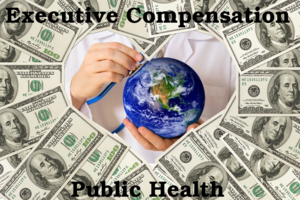J.M.Pearce (talk | contribs) m (→Source) |
Kathy Nativi (talk | contribs) (Removed link from WantedPages) |
||
| (10 intermediate revisions by 5 users not shown) | |||
| Line 1: | Line 1: | ||
[[Image:Moneyph.png|thumb]] | |||
{{MOST}} | {{MOST}} | ||
{{Source data | |||
| type = Paper | |||
| cite-as = J.M. Pearce and D. Denkenberger, “[http://progress.umb.edu.pl/node/226 Aligning Executive Incentives with Global Public Health Goals]” ''Progress in Health Sciences'' '''5'''(2), 16-23 (2015). [https://www.academia.edu/19786309/Aligning_Executive_Incentives_with_Global_Public_Health_Goals open access] | |||
}} | |||
The [[World Health Organization]] (WHO) estimates that together tobacco and alcohol kill about 9 million people annually despite aggressive and widespread public health controls. These legal industries persist because of the demand for their products and their substantial economic influence, which is magnified by the concentration of wealth in the executives of leading corporations that profit from increased legal drug sales. | |||
{{Pearce publications notice}} | |||
=== | === Materials and methods === | ||
This preliminary study quantifies the link between global premature deaths from these legal addictive drugs as a function of executive compensation in order to provide the necessary data to make more effective policy recommendations for preventing legal drug-related deaths. | This preliminary study quantifies the link between global premature deaths from these legal addictive drugs as a function of executive compensation in order to provide the necessary data to make more effective policy recommendations for preventing legal drug-related deaths. | ||
===Results | === Results === | ||
The results indicate a need to incentivize chief executive officers (CEOs), such that they have a constant marginal utility per life saved. | The results indicate a need to incentivize chief executive officers (CEOs), such that they have a constant marginal utility per life saved. | ||
===Conclusions | === Conclusions === | ||
An executive compensation incentive that moves to eliminate tobacco use is achieved by a pay structure that increases exponentially with the number of lives saved. | An executive compensation incentive that moves to eliminate tobacco use is achieved by a pay structure that increases exponentially with the number of lives saved. | ||
==Key words | == Key words == | ||
tobacco control; alcohol control; | |||
tobacco control; alcohol control; global public health; executive compensation | |||
== Discussion == | |||
* [https://80000hours.org/2016/01/just-how-bad-is-being-a-ceo-in-big-tobacco/ Just how bad is being a CEO in big tobacco?] - 80,000 Hours | |||
* [http://effective-altruism.com/ea/sz/being_a_tobacco_ceo_is_not_quite_as_bad_as_it/ Being a tobacco CEO is not quite as bad as it might seem] - Effective Altruism | |||
{{Page data}} | |||
[[Category:Health and safety]] | [[Category:Health and safety]] | ||
[[Category:MOST completed projects and publications]] | [[Category:MOST completed projects and publications]] | ||
[[ | [[Category:business]] | ||
[[Category:Public health]] | [[Category:Public health]] | ||
Latest revision as of 19:24, 18 July 2024

The World Health Organization (WHO) estimates that together tobacco and alcohol kill about 9 million people annually despite aggressive and widespread public health controls. These legal industries persist because of the demand for their products and their substantial economic influence, which is magnified by the concentration of wealth in the executives of leading corporations that profit from increased legal drug sales.
Materials and methods[edit | edit source]
This preliminary study quantifies the link between global premature deaths from these legal addictive drugs as a function of executive compensation in order to provide the necessary data to make more effective policy recommendations for preventing legal drug-related deaths.
Results[edit | edit source]
The results indicate a need to incentivize chief executive officers (CEOs), such that they have a constant marginal utility per life saved.
Conclusions[edit | edit source]
An executive compensation incentive that moves to eliminate tobacco use is achieved by a pay structure that increases exponentially with the number of lives saved.
Key words[edit | edit source]
tobacco control; alcohol control; global public health; executive compensation
Discussion[edit | edit source]
- Just how bad is being a CEO in big tobacco? - 80,000 Hours
- Being a tobacco CEO is not quite as bad as it might seem - Effective Altruism





